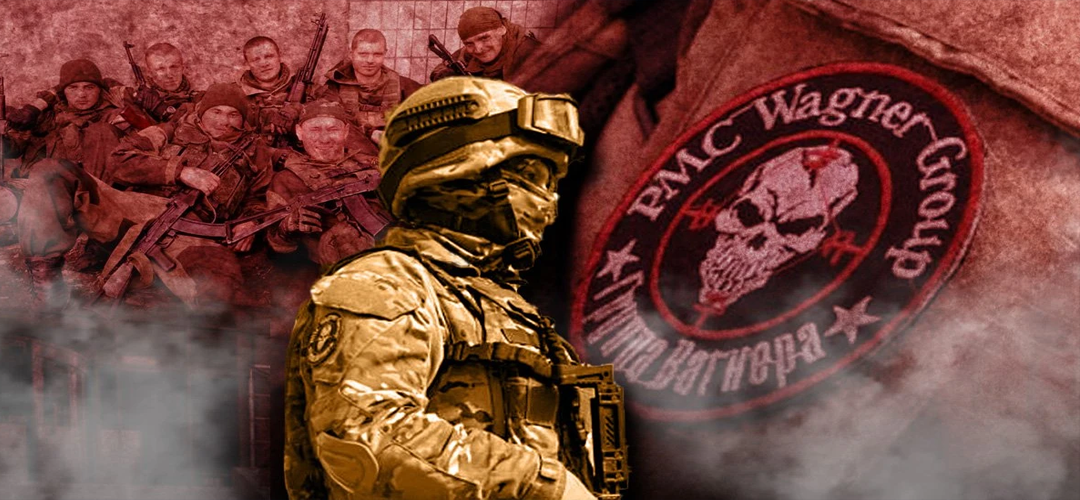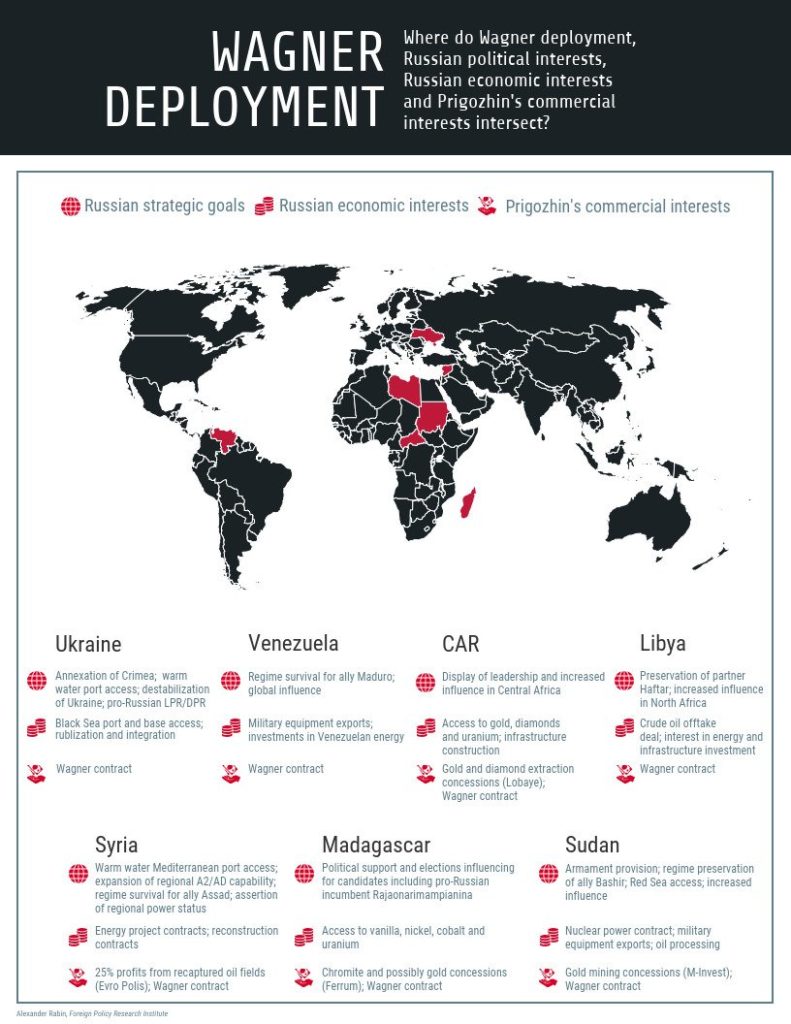RUSSIA’S SHADOW WARRIORS!
November 12, 2022 | Expert Insights

The shadow of 'Wagner" has hung over many war zones in Africa and the Middle East in the past few years, and recently, its operatives were reported to be fighting in Ukraine, shoulder to shoulder with the Russian army. Contrary to common perception, this is no single entity but a network of companies and private military contractors linked by overlapping ownerships and logistic networks.
Recently, the Wagner Group broke cover to open its new, shiny glass-fronted headquarters in St Petersburg, Russia. Its boss Yevgeny Prigozhin, a Russian oligarch, said to be close to President Putin, is an alter ego of former U.S. Navy SEAL Erik Prince, who founded the notorious Blackwater, the American private military contractors’ behemoth in 1996. Rumoured to be a former street vendor selling hot dogs, who later became a restaurant tycoon, Prigozhin has allegedly deployed thousands of his operatives in Ukraine since 2014.
Background
Private military enterprises or Private Military Contractors (PMC) saw a revival in the post-Cold War era. PMCs are flexible, cheaper, lack accountability and frequently possess far superior capabilities to traditional militaries; thus, state and non-state actors have regularly depended on their services.
Russia continues the long tradition of the Soviet Union using proxies in foreign countries. For instance, during the Second Sino-Japanese War in 1937, an air force unit was sent to China and was known as the Soviet Volunteer Group. Later, during the Cold War, tens of thousands of military experts were dispatched to numerous hot spots around the world, mainly in the Middle East, under the pretext of "advisors," where they faced up to Soldiers of Fortune or Mercenaries from South Africa, Rhodesia, UK and the U.S. In the spirit of those days when the USSR sought to free the workers of the world, the word mercenary was an anathema to the Soviets, and any mercenary captured could expect to be shot out of hand. The modernisation of the military forces of several nations, including Syria, Egypt, Libya, and others, was significantly aided by Soviet advisors who were essentially regular soldiers.
After the collapse of the Soviet Union, the Kremlin used its "volunteers" (a euphemism for its regular soldiers) who fought in Georgia and Moldova in the 1990s in pursuit of Russian interests. However, it was only in the 2010s that Russian PMCs made their first appearances in the killing fields of Syria and later in the Sahel region of Africa. In the 2014 annexation of Crimea, the Wagner group gained notoriety as it fought in support of pro-Russian separatists in the Donbas. But it was in Syria where the operatives of the Wagner group earned their spurs, saving the Assad regime from a near collapse. After bloody hand-to-hand fighting, they retook rebel-held oil fields, refineries, gas plants, and other vital infrastructure.
Later building on the lessons in Syria, Russia sent PMCs to back General Khalifa Haftar, his Libyan National Army (LNA), and the eastern-based government in Tobruk, Libya. Starting in early 2020, Moscow sent up to 800-1,200 PMC men, mainly from the Wagner Group, to various training grounds, forward locations, and significant energy and infrastructure facilities. Over time, Russia gradually increased the employment of PMCs in sub-Saharan Africa, Latin America, and other areas, including the Central African Republic, Sudan, Mozambique, Madagascar, and Venezuela.
Analysis
As Russia's geopolitical, military, and economic interests rise, PMCs are increasingly playing various roles in advancing these goals; as a tool of influence, to challenge the West and to hide personnel loss from the public eye. Taking a leaf from the playbook of the West, Moscow had also perfected the art of using PMCs to achieve complex foreign policy goals since they provide a low-risk, adaptable way to intervene anywhere in the world while maintaining a layer of credible denial.
Wagner was part of the Russian deployment in Syria that ended the civil conflict. They drove the insurgents back in the Central African Republic alongside government forces. Due to this, numerous other African nations, like Mali, where French troops just withdrew after a decade of futilely battling terrorists, turned to Russia for assistance, regaining some of the lost Cold War influence in the continent. However, not all Wagner's endeavours were fruitful. After suffering significant setbacks in the battle against jihadists, they withdrew from Mozambique in 2019. Wagner lost the civil war in Libya, where they fought alongside the rebel General Khalifa Haftar.
The group inevitably has its supporters and haters. For instance, the army captain who recently overthrew the government in Burkina Faso brandished Russian flags in the street and pleaded with Wagner to support the nation's struggle against jihadists in neighbouring Mali.
On the other hand, human rights organisations have charged Wagner fighters with killing and raping civilians in the Central African Republic (CAR), burying mines in residential areas in Libya, and torturing prisoners in Syria. Since Wagner arrived in Mali, its soldiers have been linked to atrocities against the local population, including the routine rape of teenage females in communities near its operating zones. Wagner-related crimes in the CAR grew as PMC soldiers became more involved in military operations.
Today, in the ongoing Ukraine conflict, Wagner and its operatives are publicly projected by Russian state media as Putin's heroes. As regular infantry and mechanised units floundered in the high-intensity combat environment of Ukraine, Wagner operatives were inducted in ever-increasing numbers to stiffen the conscripts. The organisation is currently publicly and aggressively recruiting new fighters from across Russia using street signs and recruiters in at least 27 of the 85 regions of the nation.
Assessment
- PMCs are a crucial component of a large arsenal of Russian tools, including covert action and cyber operations. These cases illustrate Russia's growing use of the PMC model to further its geopolitical and economic goals worldwide.
- Opening the "Wagner Centre" is regarded as Prigozhin's latest attempt to highlight his military experience and play a more prominent role in determining Russia's defence strategy.
- PMCs are anticipated to play a critical role in Russian strategic outreach for the foreseeable future, given that their operatives are believed or known to be operating in as many as 30 countries across four continents with an increasingly sophisticated and adaptable operational style.









Comments